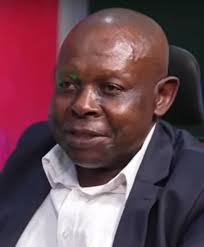Introduction
The role of the National Director of Public Prosecutions (NDPP) in South Africa is critical for upholding justice and ensuring accountability within the country’s legal system. Advocate Shamila Batohi, who was appointed to this position in 2018, has become a pivotal figure in the fight against corruption and crime. Her unique approach and commitment to restoring public faith in the prosecution authority are significant in today’s context, reflecting the broader struggles against systemic issues in South Africa.
Background of Advocate Batohi
Before her appointment as NDPP, Batohi had a storied career in law. She earned her LLB degree from the University of Natal and served as a prosecutor in various capacities, including a stint with the International Criminal Tribunal for Rwanda. Her international experience, coupled with her dedication to public service, equipped her well for leading South Africa’s prosecutorial efforts.
Key Initiatives and Challenges
Since taking office, Batohi has focused on revitalizing the National Prosecuting Authority (NPA) to combat the widespread corruption that has plagued South Africa, particularly in the wake of the State Capture scandal. This included restructuring the NPA and implementing key reforms to enhance efficiency and transparency. Her leadership aims to tackle complex cases that often involve high-profile individuals and large-scale corruption.
In 2022, Batohi announced the establishment of specialized units within the NPA to deal specifically with corruption and organised crime, demonstrating her proactive stance. Despite facing various obstacles, including political pressures and resource limitations, her administration has seen several successful convictions, which have garnered public support and renewed trust in the legal system.
Public Perception and Future Outlook
Batohi’s tenure has not been without criticism; some have questioned her ability to navigate the political landscape while pursuing justice. Nonetheless, public opinion appears to be slowly shifting in her favour as ongoing efforts to enhance the NPA’s credibility yield positive results. Regular updates on progress, transparency in operations, and accountability measures have played key roles in bolstering confidence in the system she leads.
Conclusion
As South Africa continues to grapple with issues of governance, integrity, and accountability, Advocate Shamila Batohi’s role is undeniably significant. Her commitment to fighting corruption and enhancing the integrity of the NPA serves not just as a beacon of hope for South Africans but also as a model for prosecutorial practices elsewhere. The coming years will be critical in determining whether her initiatives will lead to lasting change in the South African legal landscape. Communities and stakeholders will be watching closely to see how cases develop and whether trust in the public prosecution service can be fully restored.

